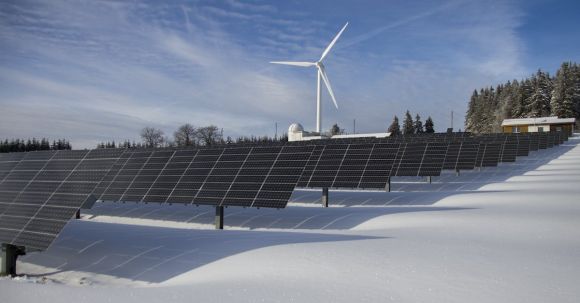Renewable energy has become a hot topic in recent years, as the world grapples with the need to reduce greenhouse gas emissions and transition away from fossil fuels. But what does the future hold for this promising source of power? In this article, we will explore the latest developments and trends in renewable energy, and delve into what the future may hold.
The Rise of Solar Power
Solar power has been on the rise in recent years, and this trend shows no signs of slowing down. With advancements in technology and falling costs, solar energy has become increasingly affordable and accessible. In fact, a recent report by the International Renewable Energy Agency (IREA) predicts that solar power could become the largest source of electricity by 2050. This is due to the abundance of sunlight and the potential for cost-effective installations in both developed and developing countries.
The Potential of Wind Energy
While solar power may steal the spotlight, wind energy also has tremendous potential for the future. Wind turbines are becoming more efficient and less expensive, making wind power an attractive option for many regions around the world. In fact, the Global Wind Energy Council (GWEC) estimates that wind power could supply up to 26% of global electricity by 2050. This growth is driven by increasing investments and supportive government policies, as well as the need to reduce carbon emissions.
The Role of Energy Storage
One of the key challenges with renewable energy is its intermittent nature. The sun doesn’t always shine, and the wind doesn’t always blow. This is where energy storage comes into play. Advances in battery technology, coupled with falling costs, are making energy storage more viable than ever before. Battery storage systems can store excess energy generated by renewables during periods of low demand or high production, and release it when needed. This helps to address the issue of intermittency and ensures a more reliable and stable power supply.
The Importance of Policy Support
While technology advancements are crucial for the future of renewable energy, policy support plays a vital role as well. Governments around the world need to implement supportive policies that promote the development and deployment of renewable energy technologies. This includes providing financial incentives, setting renewable energy targets, and establishing regulatory frameworks that encourage investment. With the right policies in place, the future of renewable energy looks bright.
The Impact of Electrification and Decentralization
Another trend that will shape the future of renewable energy is the electrification and decentralization of energy systems. As electric vehicles become more popular and the demand for electricity increases, renewable energy will play a crucial role in meeting this growing demand. Additionally, the shift towards decentralized energy systems, such as community solar and microgrids, allows for greater control and resilience in the face of natural disasters or grid failures.
Conclusion: A Promising Future Ahead
In conclusion, the future of renewable energy looks promising. The rise of solar power, the potential of wind energy, advancements in energy storage, policy support, and the impact of electrification and decentralization all point towards a future where renewable energy becomes the dominant source of power. As technology continues to evolve and costs continue to fall, we can expect renewable energy to play an increasingly important role in combating climate change and ensuring a sustainable future for generations to come.





